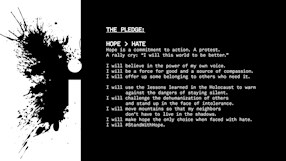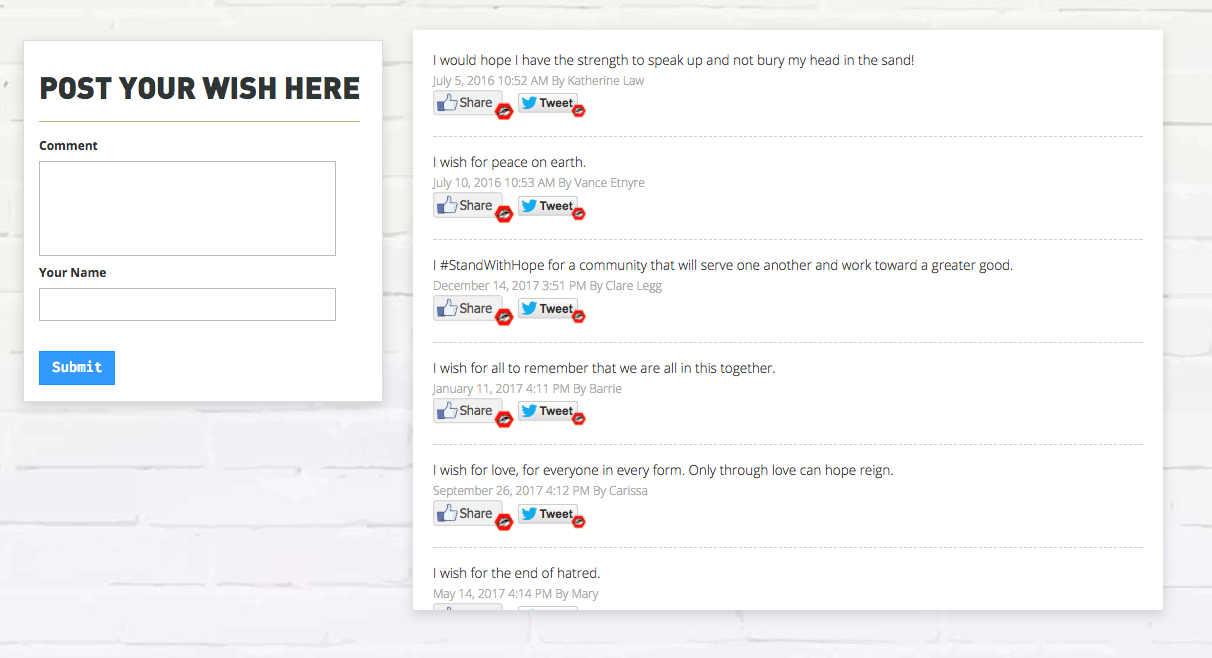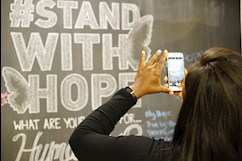More than 75 years after the young Czech poet Pavel Friedmann famously penned a farewell poem to "the very last" butterfly at the Terezin Concentration Camp, the children of the world have answered Friedmann with the largest migration of butterflies ever seen.
The United Nations will host an exhibit of handmade butterflies made by children from six continents over the last two decades to memorialize the 1.5 million children who perished in the Holocaust. The display, which opens Tuesday, Jan. 23 in the United Nations Visitors’ Lobby, represents a portion of the 1.5 million butterflies contained in Holocaust Museum Houston’s “The Butterfly Project: Remembering the Children of the Holocaust" and is presented as part of the United Nations' observance of The International Day of Commemoration in memory of the victims of the Holocaust.
“Butterflies are beauty incarnate, symbolizing all the good that humanity can accomplish while reminding us that life is fragile and that human dignity is delicate. But more critical is the butterfly’s role as a potent symbol of hope, telegraphing humanity’s potential in a simple, elegant idea.”
This exhibit at the United Nations takes a message of hope back out into the world.
"The Butterfly Project represents the resilience of the human spirit and the power of hope to transcend hatred," said Dr. Kelly J. Zúñiga, CEO of Holocaust Museum Houston. "It's fitting that these butterflies debut at the United Nations because of our shared commitment to peace, cooperation and human rights."
The Butterfly Project supports Holocaust Museum Houston’s commitment to create a more humane society by promoting responsible individual behavior, cultivating civility and pursuing social justice. As a Houston institution, the Museum strives to connect people through their common humanity. The Butterfly Project connects people through this powerful message of hope.
Today now more than ever, we need this message of remembrance and hope to create action.
These butterflies are proof that what we remember can shape the future. It’s a testament to the power of people coming together—a demonstration of what we can accomplish with simple actions.
On this global stage, we will show how individual action can change people’s hearts and, with that, the future.
The United Nations exhibit includes six large display cases and 14 wall panels showcasing hundreds of handmade butterflies “in flight,” an interactive wishing wall and a video depicting the
history of the project.
If you are unable to view the exhibit on display at The United Nations you can help share this message of hope from anywhere in the world.
Take The Butterfly Project Pledge. |
Share your hope for humanity on our wishing wall. |
Submit a Hope for 100 video. |
 |
  |
|
|
This is your individual commitment to action to create lasting impact. This is you way to tell us how you will stand for a better future. Take the pledge here and share it along with your own "I will" commitment on your social media profiles.
|
Tell us your hope for the world on our wishing wall. A world without hatred, prejudice or apathy. One where all lives are treated with respect and dignity. Tell us how you will stand with hope—and then go do it. Visit our virtual wishing wall here. |
Share your story with us and inspire others to move forward with hope. At a time when the negative, the bleak and the hateful snag headlines across the globe, we seek to shine out a positive message of compassion, respect and dignity. Submit yours here. |
Thank you to our partners and supporters whose generous contributions helped this message of hope take flight on a global stage.
TITLE SPONSORS
Jerold B. Katz Family Foundation
Blavatnik Family Foundation
PurePoint Financial
United Airlines
PRESENTING SPONSORS
Warner Music Group
LEAD SPONSORS
Paula Goldstein
Susan D. Sarofim
Susan Zises Green for The Meyer & Jean Steinberg Family Foundation
The Warren Family
SUPPORTING SPONSORS
The Schissler Foundation
The Tepper Family Foundation
View the full press release here.
For media inquiries, please contact Robin Cavanaugh at rcavanaugh@hmh.org
